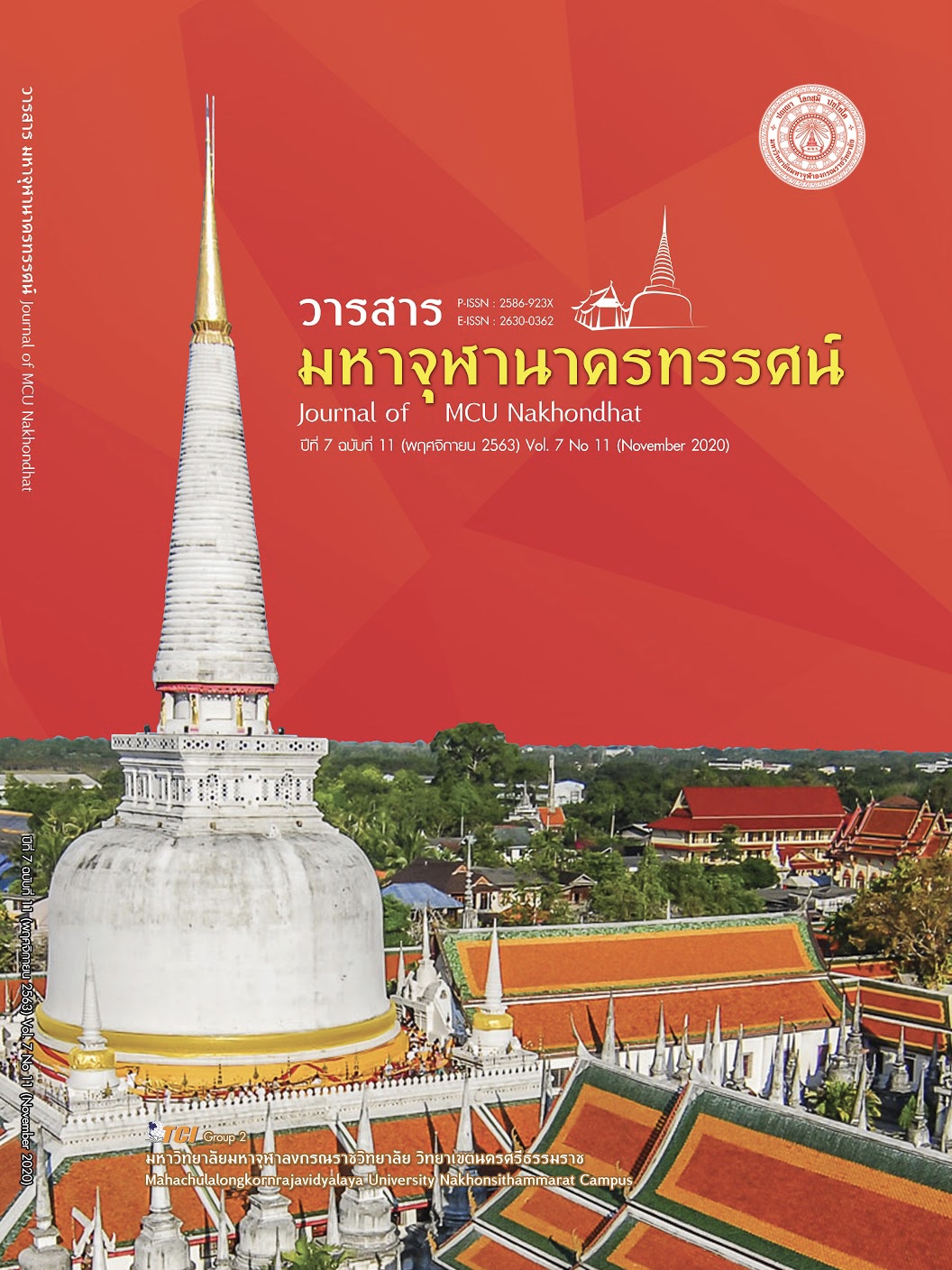MONKS' RIGHTS AND LIBERTIES IN THAI LAW
Main Article Content
Abstract
The monks' society is an old society that has existed with Thai society for a long time. The Constitution of the Kingdom of Thailand 2017 is considered the referendum version. There are several provisions that can be raised to be considered beneficial to Buddhism. And can be applied to the issue of misconduct and priest protection, namely The importance of Buddhism in the constitution In the constitution, roles Duty for the state to support religion protection People in the protection of Buddhism according to the constitution And criminal roles Later, the Sangha Act was enacted. So that the Sangha can use a form to govern themselves Which is an important measure in sustaining the Dharma of Discipline to continue to exist However, each Sangha Act is not a monk Rather, it is the law of the country established by the Kingdom as an important tool in the maintenance and promotion of Dharma. The interpretation of the Dharma and the discipline will be irrefutable. But must be interpreted in a way to maintain the strictest discipline Therefore it looks different from the general public Because besides having to behave strictly in the dharma and discipline Also must comply with the laws of the country and the customs of each society as well The key issue is the protection of Buddhism according to the 2017 Constitution of the Kingdom of Thailand, in the patronage and protection of Buddhism, the state should promote and support the education and propagation of the principles of Theravada Buddhism.To foster mental and intellectual development And measures and mechanisms must be in place to prevent any form of subversion of Buddhism. And mentioned the right of monks and novices to witness the court in the election and in property.
Article Details
References
เสถียร โพธินันทะ. (2543). พระพุทธศาสนาในราชอาณาจักรไทย. (พิมพ์ครั้งที่ 2). กรุงเทพมหานคร: โรงพิมพ์มหามกุฎราชวิทยาลัย.
แสวง อุดมศรี. (2559). การปกครองคณะสงฆ์ไทย. (พิมพ์ครั้งที่ 1). กรุงเทพมหานคร: นิติธรรมการพิมพ์.
กีรวุฒิ กิติยาดิศัย. (2556). สิทธิเสรีภาพของพระภิกษุสงฆ์. ใน เอกสารวิชาการส่วนบุคคล หลักสูตรหลักนิติธรรมเพื่อประชาธิปไตย. วิทยาลัยรัฐธรรมนูญ สำนักงานศาลรัฐธรรมนูญ.
ดุสิต โสภิตชา. (2542). ทำไมรัฐธรรมนูญไม่บัญญัติคุ้มครองพระพุทธศาสนาเป็นศาสนาประจำชาติ. กรุงเทพมหานคร: โรงพิมพ์มหาจุฬาลงกรณราชวิทยาลัย.
ทวีวัฒน์ ปุณฑริกวิวัฒน์. (29 สิงหาคม 2547). พระสงฆ์ไทยกับสิทธิทางกฎหมาย. มติชนรายวัน, หน้า 6.
ปลื้ม โชติษฐยางกูร. (2559). คำบรรยายกฎหมายคณะสงฆ์. กรุงเทพมหานคร: โรงพิมพ์มหาจุฬาลงกรณราชวิทยาลัย.
พระไพศาล วิสาโล. (2552). พระพุทธศาสนาไทยในอนาคตแนวโน้มและทางออกจากวิกฤติ. (พิมพ์ครั้งที่ 2). กรุงเทพมหานคร: มูลนิธิโกมลคีมทอง.
มานิตย์ จุมปา. (2551). การเป็นเจ้าของทรัพย์สินของพระภิกษุ. คณะนิติศาสตร์ จุฬาลงกรณ์มหาวิทยาลัย. เรียกใช้เมื่อ 25 กันยายน 2563 จาก http://www.openbase.in.th/ http%3A/%252
รัฐธรรมนูญห่งราชอาณาจักรไทย. (2560). ราชกิจจานุเบกษา เล่ม 134 ตอนที่ 40 ก หน้า 17 (6 เมษายน 2560).


